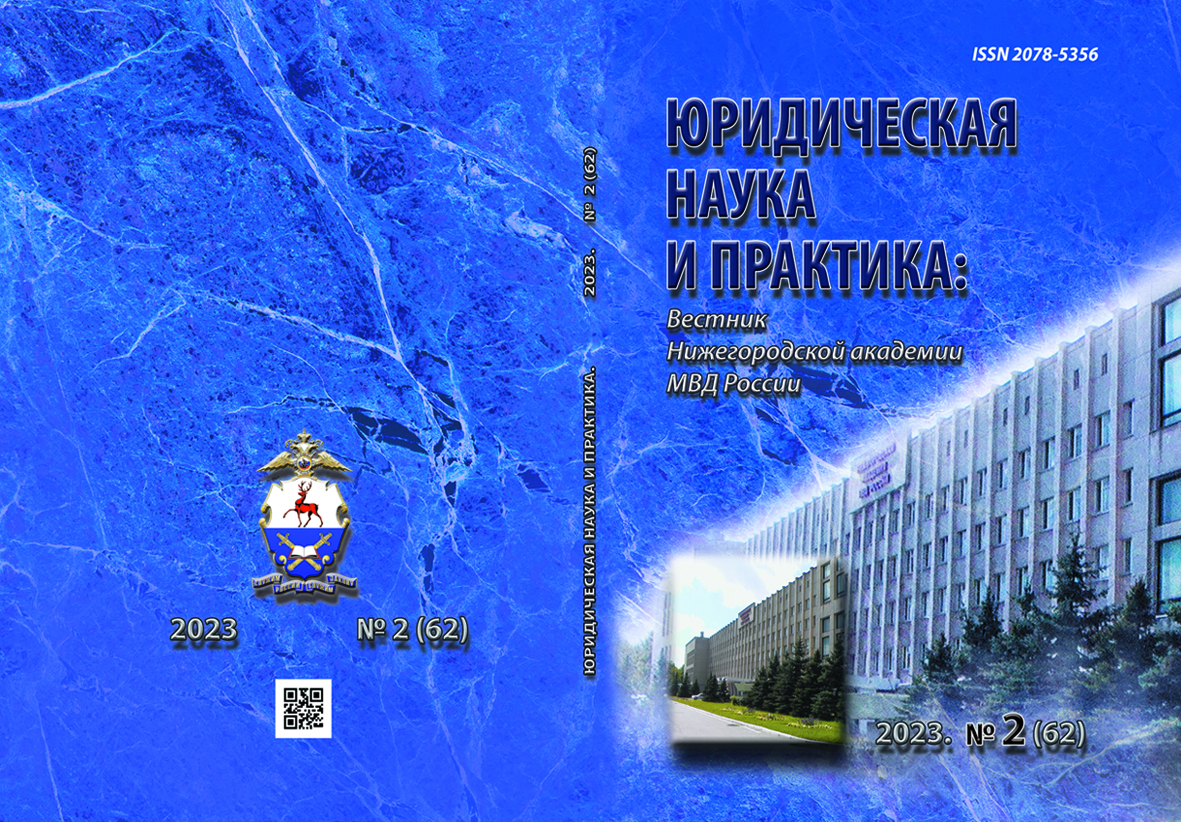The article is devoted to the consideration of the problems of the formation of elements of the artificial intelligence system in the process of creating and adapting draft court decisions with currently existing automated systems for storing and processing data in court proceedings. The emphasis is placed on the capabilities inherent in information systems used in modern arbitration. The author suggests a number of possible specific algorithms and tools to launch the process of using the capabilities of artificial intelligence to improve the efficiency of domestic legal proceedings.
artificial intelligence, arbitration process, court proceedings, court decision, automation, optimization, neural networks, machine learning
1. Valentina Egorova. Putin called for the mass introduction of artificial intelligence in all industries. The main thing from the speech of the President of the Russian Federation. URL: https://rg.ru/2022/11/24/putin-prinial-uchastie-v-konferencii-poiskusstvennomu-intellektu-glavnoe.html (accessed 17.04.2023). (In Russ.)
2. Albitskaya I., Kosyakov A. Artificial intelligence for lawyers. Legal guide of the head, 2022, no. 1, pp. 79-84. (In Russ.)
3. Soltsin L. O. Digital technologies: concept, types. Access from the references legal system “ConsultantPlus” (accessed 15.04.2023). (In Russ.)
4. Regulation of robotics: an introduction to “robopravo”. Legal aspects of the development of robotics and artificial intelligence technologies / V. V. Arkhipov [and others] / ed. by A. V. Neznamov. Moscow: Infotropik Media Publ., 2018. 232 p. (In Russ.)
5. Independent robot-judicial system (robot judges with AI and psychosonding as verification of truth). URL: https://zen.yandex.ru/media/thedailyplanet/nezavisimaia-robotosudebnaia-sistema-sudiroboty-s-ii-i-psihozondirovanie-kak-verifikaciia-istiny-607a48a019675453a5f7a7f8 (accessed 12.04.2023). (In Russ.)
6. Bubnovskaya T. A. Civil liability when using unmanned vehicles. Transport law, 2019, no. 3, pp. 6-9. (In Russ.)
7. Khuzhin A. M. On the construction of strict legal liability in law. Legal technique, 2013, no. 7-2, pp. 807-813. (In Russ.)
8. Gorokhova S. S. Technologies based on artificial intelligence: prospects and responsibility in the legal field. Lawyer, 2021, no. 6, pp. 60-67. (In Russ.)
9. The list of instructions following the results of the conference “Journey into the world of artificial intelligence” (approved by the President of the Russian Fede-ration no. Pr-172 of January 29, 2023): not published. Access from the reference legal system “ConsultantPlus” (accessed 15.04.2023). (In Russ.)
10. On the development of artificial intelligence in the Russian Federation Federation: decree of the President of the Russian Federation no. 490 of October 10, 2019 (together with the “National Strategy for the Development of artificial intelligence for the period up to 2030”). Collection of legislative acts of the RF, 2019, no. 41, art. 5700. (In Russ.)
11. Cherdakov O. I. The attitude of the state and business to the development and implementation of artificial intelligence technologies in the Russian financial sphere and economy. Banking law, 2022, no. 5, pp. 40-47. (In Russ.)












